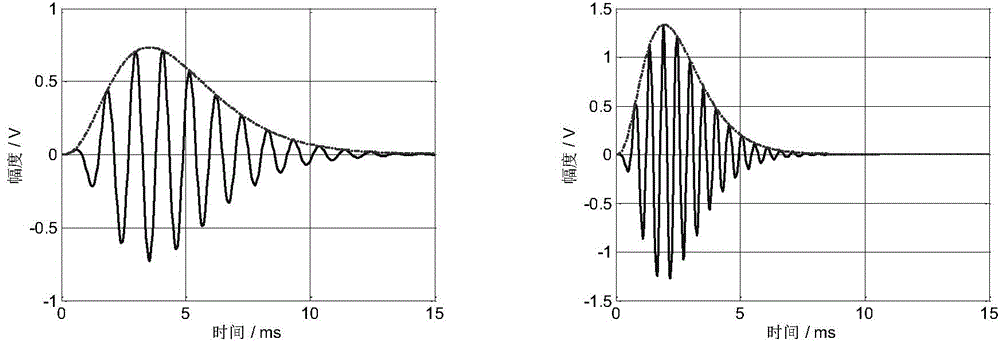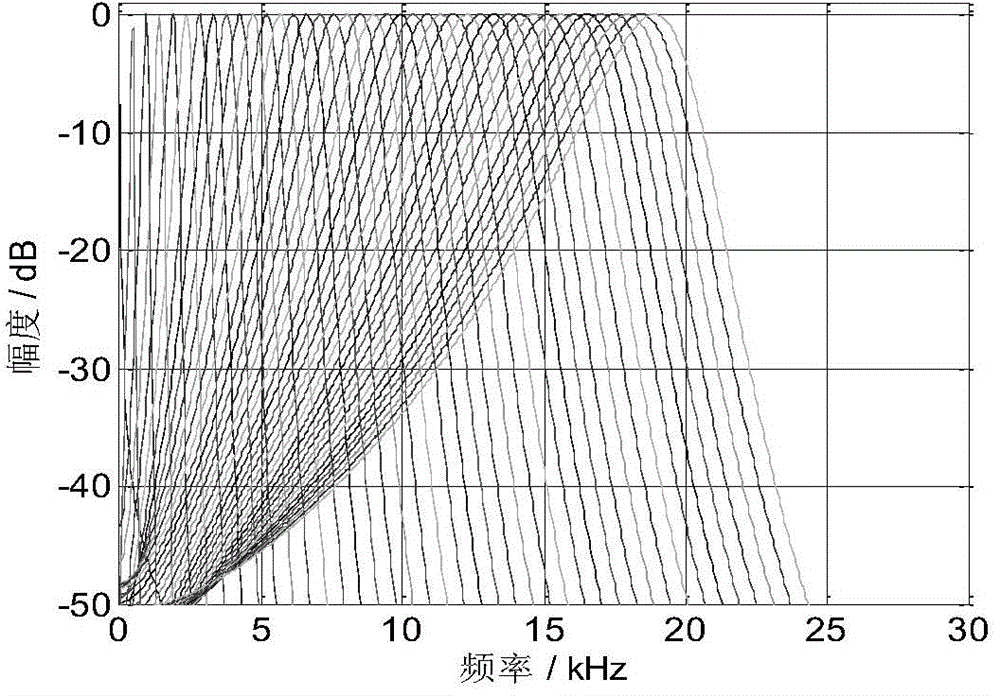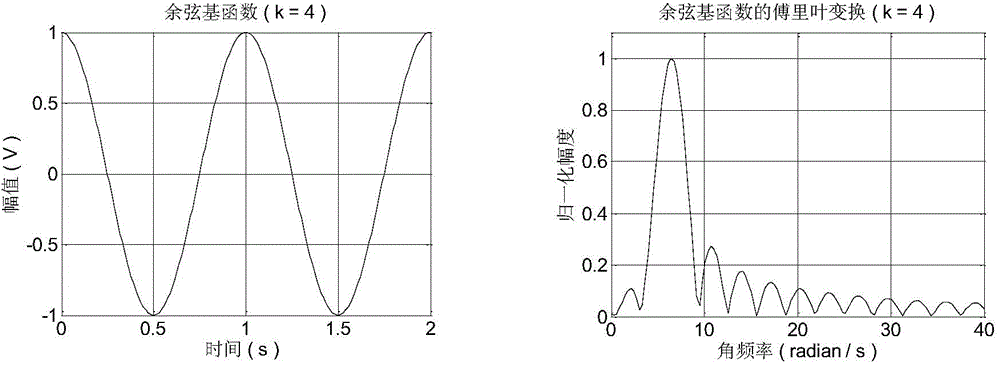Gammachirp cepstrum coefficient auditory feature extraction method of underwater targets
A cepstral coefficient and auditory feature technology, applied in the field of classification and recognition of underwater target radiation noise, can solve problems such as error, signal interference, and MFCC algorithm is easily affected by noise, and achieve improved accuracy, clear spectrogram background, The effect of improving the correct recognition rate
- Summary
- Abstract
- Description
- Claims
- Application Information
AI Technical Summary
Problems solved by technology
Method used
Image
Examples
Embodiment Construction
[0037] Now in conjunction with embodiment, accompanying drawing, the present invention will be further described:
[0038] This embodiment is the radiated noise of underwater targets recorded at sea. The radiated noise of underwater targets is sampled at a sampling rate of 22.05 kHz, and the signal-to-noise ratio is greater than 6 dB.
[0039] For the underwater target radiation noise data that is recorded, the main steps of the present invention are as follows:
[0040] Step 1: Preprocessing the radiation noise of the recorded underwater target, including framing and windowing, the window function uses the Hamming window, and its form is
[0041] ω ( n ) = 0.54 - 0.46 cos ( 2 πn N - 1 ) , ...
PUM
 Login to View More
Login to View More Abstract
Description
Claims
Application Information
 Login to View More
Login to View More - R&D
- Intellectual Property
- Life Sciences
- Materials
- Tech Scout
- Unparalleled Data Quality
- Higher Quality Content
- 60% Fewer Hallucinations
Browse by: Latest US Patents, China's latest patents, Technical Efficacy Thesaurus, Application Domain, Technology Topic, Popular Technical Reports.
© 2025 PatSnap. All rights reserved.Legal|Privacy policy|Modern Slavery Act Transparency Statement|Sitemap|About US| Contact US: help@patsnap.com



